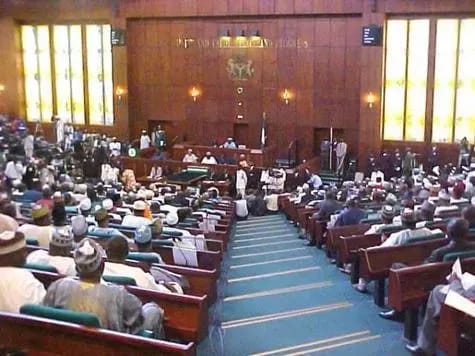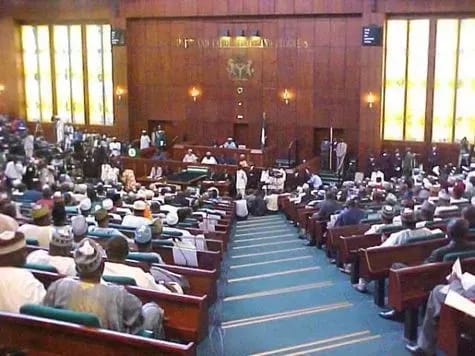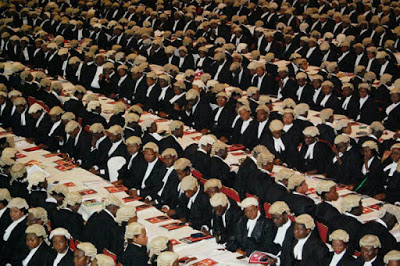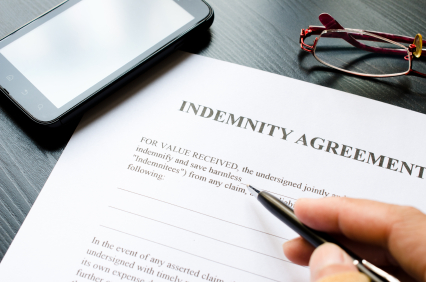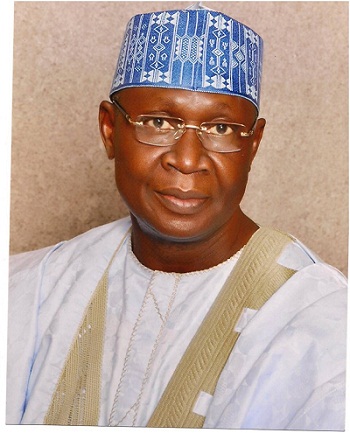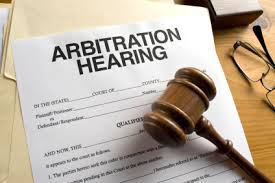 |
| Credits- vegaaviation.com.ge |
Introduction
With Government’s intervention and investment in the Nigerian aviation sector
through, among others, the ongoing rehabilitation works at different airports,
improvement of navigational facilities, planned floating of a national carrier,
provision of airline intervention fund to domestic operators through the Bank
of Industry, the Nigerian aviation sector has considerably regained public
confidence. Demand for domestic air travels and patronage of Nigeria airlines
operating regional and international routes is on the increase. To take
advantage of the upsurge, several airline operators are taking steps to
increase their fleets and expand their operations and in some cases, cater for
new regional and international routes. In view of the prohibitive cost of
aircraft acquisition however, practically all the operators are turning to one
lease instrument or another. The most common lease options in acquiring an
aircraft are operating lease and finance lease.
Of major importance in the choice of lease options by airline operators are tax
obligations and benefits. Under the Companies Income Tax Act, Cap C21, Laws of
the Federation of Nigeria 2005 (“CITA”), these two types of lease attract
different tax incidences in relation to Capital allowance, Withholding Tax,
Value Added Tax, Capital Gains Tax etc. The considerations for the choice of
lease option by operators however do not change the concerns of Lessor and
financiers, mostly foreign aircraft manufacturers, leasing companies and
operators whose due diligence and security requirements are usually detailed
and wide-ranging.
Lessors’ security requirements and documentation often depend on the structure
and dynamics of the lease arrangement and may include Billing System Payment Account
Charge, Deregistration Power of Attorney, Irrevocable Deregistration and Export
Request Authorisation, Intercreditor Agreement, Assignment of Receivables
Agreement, Flight/Aircraft Services Agreement, Engine Warranty Agreement,
Airframe Warranty Agreement, Assignment of Insurances, Assignment of
Reinsurances etc. However, the due diligence concerns and requirements of
Lessors are often the same. Understanding and addressing these concerns and
requirements is, from our experience, as important to a seamless lease
arrangement as meeting Lessors security requirements.
In this edition, PUC Quarterly highlights the differences between an operating
and a finance lease, details the tax regimes applicable to each lease
instrument and identifies some of the major queries of Lessor.
Operating Lease or
Finance Lease: Understanding the difference
One of the major attractions in operating leases is that they are traditionally
for a short-term, usually less than 10 years, although the lifespan of the
lease may not be known at the beginning.
The Lessor retains
ownership of the aircraft as well as the risks, obligations and benefits
associated with ownership in addition to the lease rental that the Lessor
receives. The lease may become cancelled or renewed as may become necessary.
More importantly, the Lessor is under the obligation to pay such cost as
insurance, maintenance and similar charges on the aircraft in addition to his
warranties as to the condition and fitness of the aircraft. If the aircraft is
lost, rentals cease and the Lessor becomes entitled to payment of the insurance
under its policies.
The short duration of an operating lease offers the operator flexibility in the
management of fleet size and composition enabling the operator to increase or
decrease the number of aircrafts in its fleet over a period of time as it
business demands. The Lessee is also able to manage aircraft obsolescence and
the dangers associated therewith by keeping only relatively new aircraft in its
fleet. On the downside, the Lessor may incur considerable expenses maintaining
the aircraft on the Lessor’s stringent terms due to the latter’s interest in
ensuring that residual value of the aircraft is not depleted by requiring that
the aircraft be returned in almost the same condition as its condition at
delivery.
A finance lease on the other hand usually has a longer lifespan. A distinctive
feature of a finance lease which ought to attract any Lessee’s interest is that
the risks and rewards of ownership are transferred to the Lessee from the
commencement of the lease. The Lessee pays cost associated with the lease such
as insurance, maintenance and other charges on the aircraft in addition to
periodic lease rentals. The primary term of the lease is sufficient to allow
the Lessor to recover rentals equal to the capital cost plus an amount equal to
interest often over the useful life of the aircraft and thereafter the Lessee
may retain ownership of the aircraft at nominal rate.
In a finance lease, the Lessee is almost the “owner” of the aircraft. If the
aircraft is sold on a Lessee default, the Lessee may receive any surplus by way
of a rebate of rentals. The Lessee however takes the asset “as is” without
warranties as to condition or fitness from the Lessor, it must maintain the
aircraft, insure it and must continue to pay the Lessor the full rentals, even
if the aircraft is damaged or requisitioned, subject to a right to terminate on
payment of all the unrecovered capital, usually out of insurance or requisition
proceeds payable to the Lessee.
Tax Considerations
Operating Lease under the CITA, the total lease
rental received or receivable by the Lessor is income and is wholly taxable in
accordance with paragraph 18 (1)(b), 2nd Schedule, CITA. The Lessor is entitled
to claim capital allowance on the leased assets. The Lessor is however liable
to Withholding Tax (WHT) at 10% of the total rental income due on the lease,
computed on the total lease rental must be deducted from the sums due from the
Lessee. Lessors resident in countries having tax treaties with Nigeria e.g.
Belgium, France, Canada etc, pay WHT at the rate of 7.5%. The lease rental
income is also liable to VAT. The Lessor may include a 5% VAT charge on its
invoice to the Lessee.
In favour of the
Lessee, the lease rental charges and other associated expenses are allowable
deductions for tax purposes. The VAT charged by the Lessor on the lease rental
charge is not an input tax to the Lessee; it is to be charged to the Profit and
Loss Account as an advance payment of tax. However, notwithstanding that the
Lessor might have passed the burden unto the Lessee, the Lessee is liable to
withhold tax at the rate of 10% of the rental payment to the Lessor to the
relevant tax authority.
Finance Lease in a finance lease, the interest
portion of the rent earned by the Lessor constitutes taxable income; the
capital portion is a repayment of initial investment and has no tax
implications. The Lessor is however not entitled to claim capital allowances on
the leased asset; only the Lessee is entitled to make such claims – Paragraph
18 (2) of the 2nd Schedule to CITA. If the aircraft is disposed at the
expiration of the lease period, any capital gain realised by the Lessor would
be subject to CGT.
WHT is computed only on the interest portion of the total lease payment due
from the Lessee. The Lessor will receive lease rent less 10% WHT unless there
is tax treaty between Nigeria and the Lessor’s country in which case, WHT is
7.5%. The credit note will be issued in the name of the Lessor who can use it
to offset its income tax liability for the relevant period. However, interest
earned by the Lessor on finance lease is a return on investment and is not
liable to VAT.
To the Lessee’s benefit, the interest portion of the periodic lease rent and
other related expenses such as insurance and maintenance cost are deductible
expenses for income tax purposes. The Lessee is entitled to claim capital
allowance on capital portion of the value of the aircraft. The Lessor however
bears liability for remittance of the WHT on the interest portion of the lease
rental even where it is prevented from deducting WHT by gross up provisions in
the lease agreement. The Lessee may however be liable to CGT if the leased
asset was sold by him after exercising the purchase option.
Lessors’ Queries
Tax liabilities under Nigerian law are however not a Lessor’s most important
consideration as the Lessor can conveniently pass on the entire tax burden to
the Lessee by tax gross up provisions in the lease agreement which may simply
require that if the Lessee is required by law to make a tax deduction, the
amount of the payment due from the Lessor shall be increased to an amount which
(after making the tax deduction) leaves an amount equal to the payment which
would have been due if no tax deduction had been required. The Lessor’s more
serious concerns relate to repossession, security of rentals, reversional
interest and the residual value of the aircraft, validity and enforceability of
agreements, etc. In practice, the prospective Lessee approaches an aviation
leasing company. After preliminary negotiation, the Lessor and Lessee together
with the aircraft owner (if there exist one in this instance) would execute a
Lease Agreement among other documentation. Before the execution of these documents
and particularly at the negotiation stage, the Lessor will usually contact a
Nigerian law firm on some certain areas of concern arising in the lease. These
concerns categorised into broad areas are but not limited to:
Conventions
The Lessor will like to know if Nigeria has ratified any of the conventions
bordering on aircraft transportation. Of paramount importance to the Lessor are
conventions that grant security on operation of the aircraft as well as
repossession of the aircraft in the event that there is a default or
termination of lease. Such conventions include the Chicago Convention of 1944
on Internatinal Civil Aviation, the 1948 Geneva Convention on the International
Recognition of Rights in Aircraft, the 1933 Convention for the Unification of
Certain Rules Relating to the Precautionary Arrest of Aircrafts and more
particularly, the 2001 Cape Town Convention on the International Interest in
Mobile Equipment and the associated protocols on matters specific to aircraft
equipment. Not only will the Lessor be interested on the ratification of these
conventions and the associated Protocols but the extent to which they have been
enforced or made applicable in the jurisdiction e.g. the extent to which
Nigeria has derogated from the Cape Town Convention and the associated Protocol
on Matters Specific to Aircraft Equipment (“the Protocol”), the relevant
articles of the convention and the Protocol in respect of which Nigeria has
made declarations, the relevant applicable law in Nigeria to ensure an effective
registration under the Cape Town Convention and the Protocol etc.
Forum and Judgment Enforcement
Closely related to this will be issues dealing with choice of law of the
parties and whether same will be respected by the Nigerian courts and whether
any judgment of the forum court against the Lessee would be recognised and
enforced by the courts in Nigeria without retrial on the merit. Of particular
importance in this regard, is whether there is any reciprocity for enforcement
of judgments between the chosen forum and Nigeria and the procedure and
possible timeline for the recognition and enforcement of such judgments.
Filings and
Registration
The Lessor is concerned in this instance in knowing the necessary filings and
registrations that is needed to perfect the Lessor/Owners title in Nigeria and
the extent to which such interest is vested in the Lessor or any other person
holding security over the aircraft. What is the effect of the registration of
the lease on the Lessor’s interest; would Nigerian law regard the Lessee as
having beneficial interest in the aircraft by virtue of the registration and
would this confer any equitable title right or interest in the aircraft. The
Lessor is also interested in knowing the necessary documents that need to be filed,
the agencies that are involved and the fees that are applicable. This will also
cover any other form of taxation that may be payable. This also covers the
pre-registration stage where technical inspection is conducted on the aircraft
sought to be registered. The duration that these processes will take is also in
issue.
Security
This is the most critical area to the Lessor in the lease agreement. This
aspect deals with protecting the interest of the Lessor/Owner in the aircraft
in the event that there is a default of lease or its termination. The Lessor
amongst other things inquires on the lease documentation and other
documentations and the Lessor will want to know if stamp duties is payable on
lease and if same is registrable with the relevant governmental agencies. One
area that gets a large chunk is how deregistration of the aircraft is effected.
The Lessor would also want to know if the interim reliefs provided in Article
13 of the Cape Town Convention are applicable. Not to be left out is the validity
and applicability of the IDERA. The effect of bankruptcy and insolvency on the
Lessee would also be of concern to the Lessor. At this stage also plays out the
concept of Security Trustee. The Security Trustee will border more on the
administration and disbursement of receivables received in respect of the
lease.
Deregistration/Exportation
Power of Attorney
The Lessor would be interested in any export control restrictions applicable in
Nigeria and the extent of such restrictions. This would include whether a
Deregistration Power of Attorney empowering the Lessor to export the aircraft
from the Nigeria upon the occurrence of an event of default of by Lessee, the
expiration or early termination of lease agreement would be enforceable under
Nigerian law, notwithstanding that the governing law of the Power of Attorney
may be a foreign law. Other concerns of the Lessor relating to the
deregistration and exportation Power of Attorney include whether the
occurrence, declaration of insolvency or commencement of winding-up proceedings
against the Lessee would negative or invalidate the Deregistration Power of
Attorney. The Lessee also wants to know if the DPOA is revocable, the
circumstances where it will be revoked and if the DPOA will be recognised and
enforced in the Nigerian jurisdiction. All of these are valid anxiety arising
from the inherent right granted under Chapter III of the Cape Town Convention.
Liens and Repossession
The Lessor would want to know whether the non-payment by the Lessee of
statutory fees and duties e.g. landing fees create a statutory lien over the
aircraft which would entitle the relevant authority to take possession of the
aircraft and whether this creates a concomitant liability on the Lessor to
discharge such payments. In such case, whether such authority would have the
right to sell the aircraft to recover whatever payment is due from the Lessee.
Is the Lessor entitled to resort to self helps e.g. take physical possession of
the aircraft upon the termination of the lease or must commence legal
proceedings for this purpose? What would be the duration and potential cost of
such legal proceedings? Would be Lessor be entitled to obtain interim order for
the repossession of the aircraft?
Bankruptcy/Insolvency
The Lessor is concerned here on what happens to the aircraft in the event that
the Lessee becomes insolvent. In specific terms, whether the commencement of
insolvency proceedings automatically precludes the Lessor from repossessing the
aircraft; what would be the ranking of the Lessor’s rights and interests over
the aircraft vis-à-vis creditors and other persons who have claims over the
Lessee’s assets; and whether a receiver or liquidator appointed in such
proceedings would be bound to give effect to the lease agreement between the
Lessor and Lessee including respecting the right of the Lessor to terminate the
lease agreement consequent upon the commencement of the insolvency proceedings
etc.
Insurance and other General Matters
The Lessor inquires if the AVN52C insurance coverage is applicable in Nigeria.
The Lessor is also of concern is if the aircraft must be insured or reinsured
in Nigeria alone or if same can be done outside jurisdiction and if National
Insurance Commission’s approval is required. As stated earlier, the aviation
business is a capital intensive venture and the Lessor would like to know if
the insurance can be carried out outside the jurisdiction or whether same can
be carried out partly outside jurisdiction and within jurisdiction and whether
an assignment of the rights of the Lessee in the insurance taken in Nigeria
would be enforceable under Nigerian law.
Other general matters that may be referred to are issues on the ability of the
Lessor to sell the aircraft during the pendency of the lease, Lessor and Lessee
liability in tort, if there are additional documentation required for the
aircraft registration in Nigeria, repatriation of funds and aircraft engine.
Conclusion
The areas identified above are a non-exhaustive list of concerns that the
Lessor has in leasing an aircraft to a Lessee. Ultimately, the Lessor’s concern
is on realising the lease sum, ensuring the proper safety and maintenance of
the aircraft as well as a cordial relationship between the Lessor and the
Lessee. . If the issues identified above are put into consideration by the
operators intending to take the lease option before commencement of negotiation
with lessor and the lessee obtains proper advice and guidance in respect
thereof, potential dispute areas would be reduced and the lease process would be
seamless.
By: Olumide
Oyinloye



